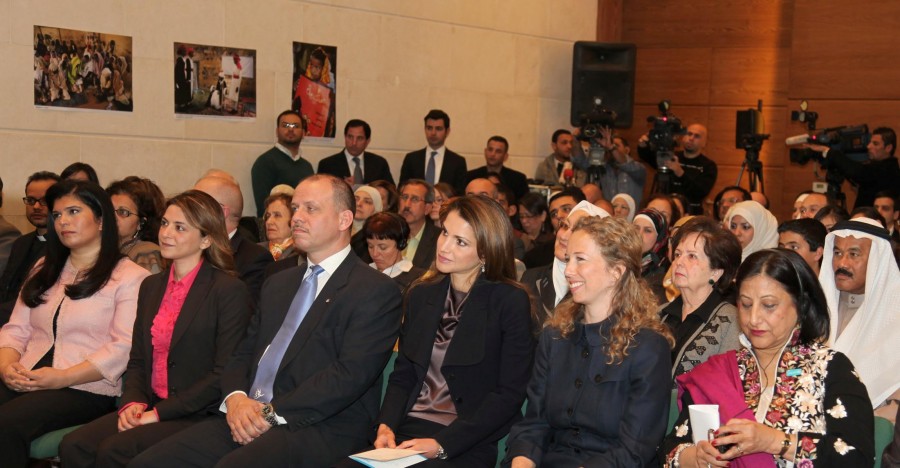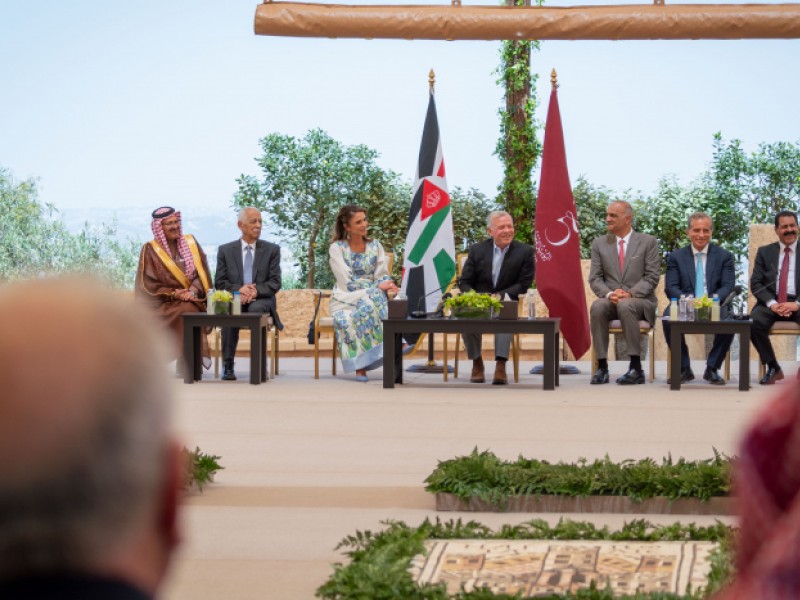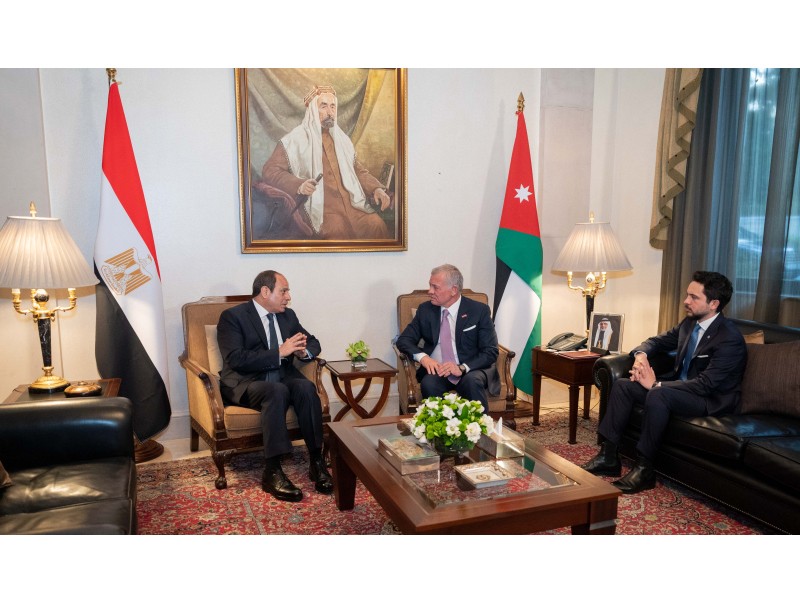Queen Rania Attends the Launch of UNICEF's State of the World's Children Report

(Office of Her Majesty – Press Department – Amman) - Under the patronage of Her Majesty Queen Rania Al Abdullah, UNICEF Eminent Advocate for Children, UNICEF’s Regional Office for the Middle East and North Africa launched today the organization’s flagship publication The State of the World’s Children, focusing this year on the theme of “Adolescence: an age of opportunity”.
The ceremony, at the Jordan Museum, was attended by HRH Prince Feisal bin Al Hussein, HRH Princess Sara Al Feisal, and HRH Princess Sumaya bint Al Hassan.
Shahida Azfar, UNICEF MENA Interim Regional Director presented the publication’s main findings. “There are 84 million adolescents in the Middle East and North Africa, representing one fifth of the population,” said Azfar,. “Meeting their needs is key to breaking the intergenerational cycle of poverty and inequity and to reaping the demographic dividends if timely and sufficient investments are made in the positive development of young people.”
According to the report the MENA region has made significant progress in improving the rights of children and adolescents. Under-five mortality rates decreased by 47 per cent between 1990 and 2009. Some 83 per cent of children of primary school-age are enrolled in school. Globally, nearly one third of children of secondary school age are not enrolled in schools.
In the Middle East and North Africa, nearly 1 in 10 children aged between 5 and 14 is involved in child labour. And some 90 per cent of children aged 2-14 experience violent disciplinary methods. The report highlights the need for adolescents to be equipped with the skills and knowledge to deal with the multiple challenges facing them by investing in quality education and learning opportunities, especially for the adolescent girl.
The report argues the importance of improving data collection to aid in understanding adolescents and ways to meet their rights. It also emphasizes the need to invest in their education and training, offer them platforms for self-expression, protect their rights through targeted laws, policies, and programs, and establish child sensitive programs to help fight against poverty and inequality.
Featured
Queen Rania's official website
This website does not support old browsers. To view this website, Please upgrade your browser to IE 9 or greater
Your browser is out of date. It has known security flaws and may not display all features of this and other websites. Learn how to update your browser



